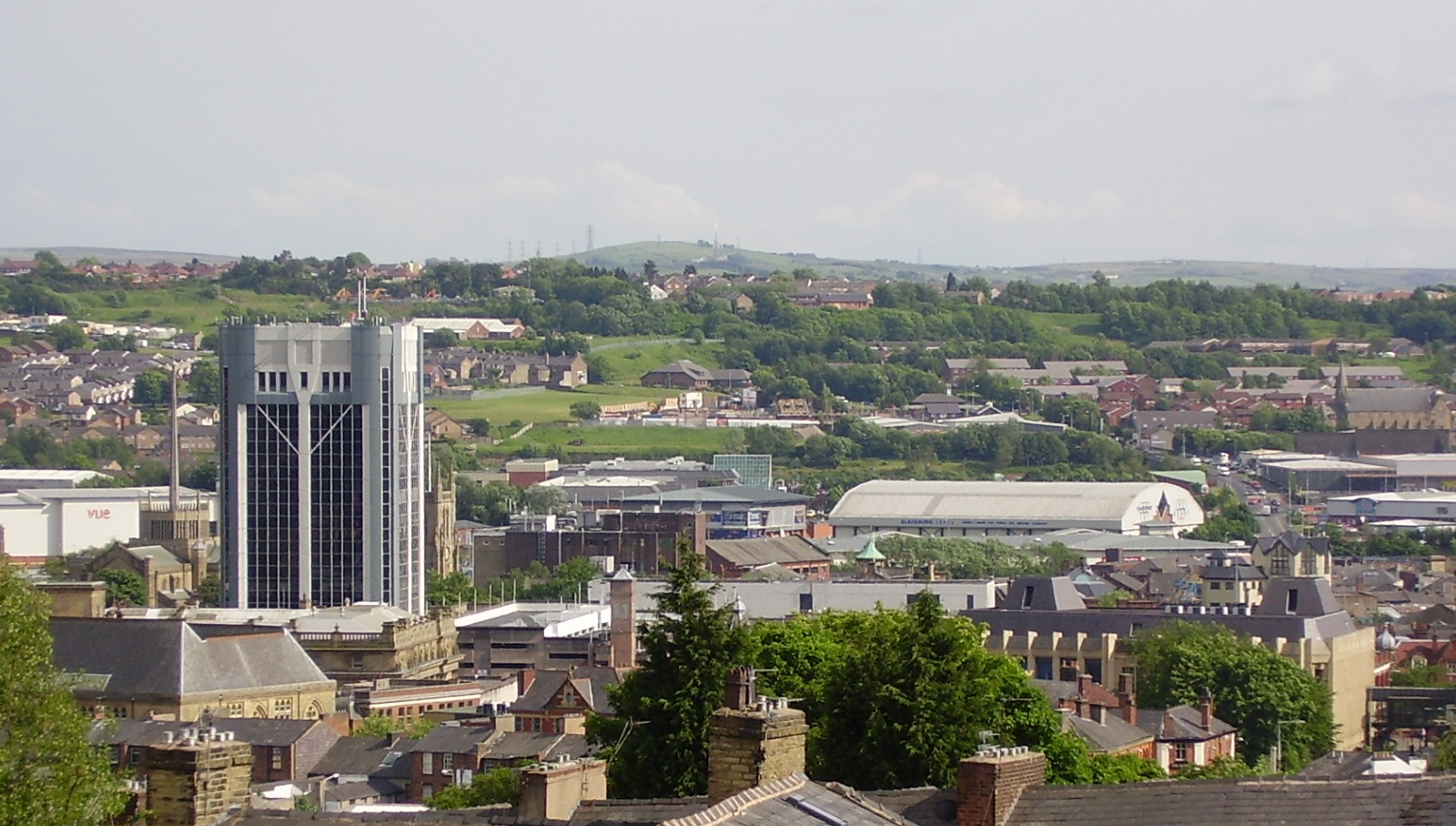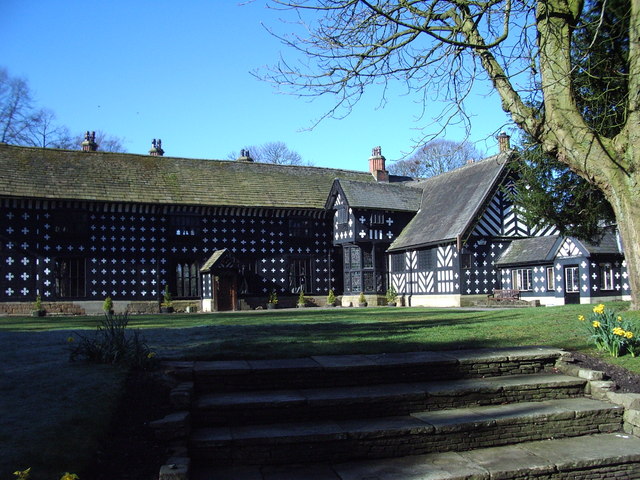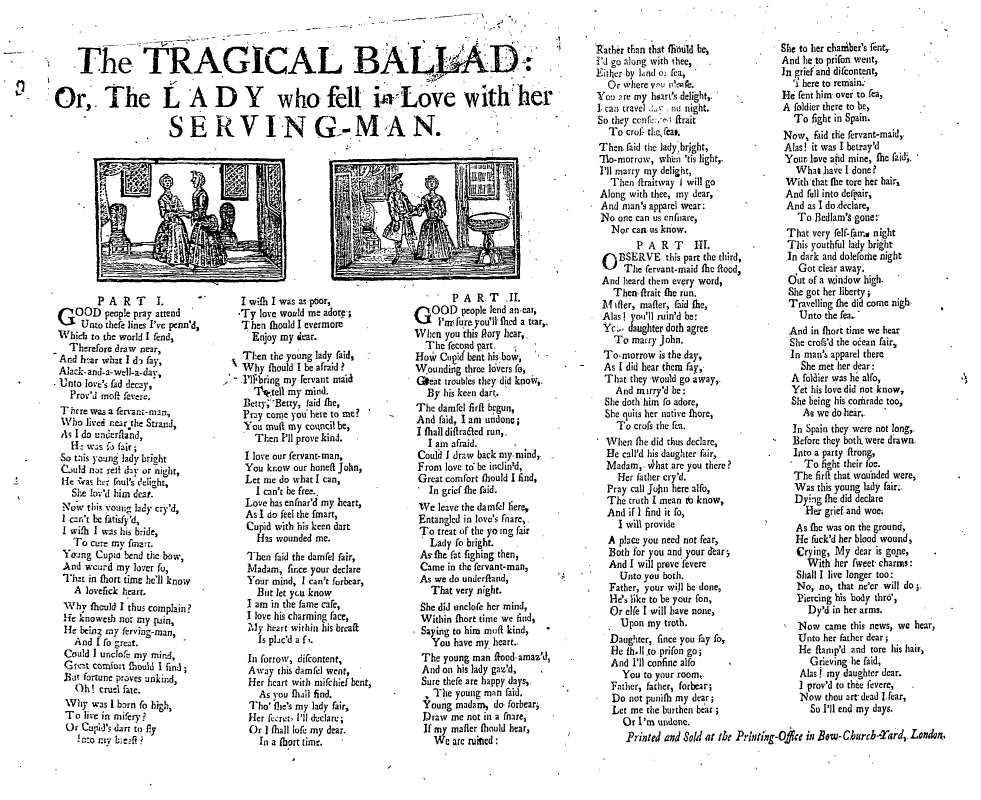|
William Billington (poet)
William Billington (3 April 1825 – 3 January 1884) was an English poet, living in Blackburn, Lancashire and sometimes writing in dialect. He became known as "The Blackburn Poet". Life Billington was born in Samlesbury, Lancashire in 1825. His parents Benedict and Ann Billington were at the time unemployed hand-loom weavers, working for a contractor for roadmaking. His father died in 1832; three of his children died from tuberculosis before 1837. The surviving children were supported by Ann's hand-loom weaving. He learned to read and write at Catholic Sunday schools; otherwise he was mainly self-taught. The songs composed by his uncle Robert Bolton, and the works of local poet Richard Dugdale, a lifelong friend, helped to give an interest in poetry. In 1839 the family moved to Blackburn, and Billington passed through various stages of employment in the cotton mills, from "doffer" to weaver and "taper". On 24 June 1846 he married Elizabeth Walmsley; she died in 1857. Billingt ... [...More Info...] [...Related Items...] OR: [Wikipedia] [Google] [Baidu] |
:Template:Infobox Writer/doc
Infobox writer may be used to summarize information about a person who is a writer/author (includes screenwriters). If the writer-specific fields here are not needed, consider using the more general ; other infoboxes there can be found in :People and person infobox templates. This template may also be used as a module (or sub-template) of ; see WikiProject Infoboxes/embed for guidance on such usage. Syntax The infobox may be added by pasting the template as shown below into an article. All fields are optional. Any unused parameter names can be left blank or omitted. Parameters Please remove any parameters from an article's infobox that are unlikely to be used. All parameters are optional. Unless otherwise specified, if a parameter has multiple values, they should be comma-separated using the template: : which produces: : , language= If any of the individual values contain commas already, add to use semi-colons as separators: : which produces: : , ps ... [...More Info...] [...Related Items...] OR: [Wikipedia] [Google] [Baidu] |
Blackburn
Blackburn () is an industrial town and the administrative centre of the Blackburn with Darwen borough in Lancashire, England. The town is north of the West Pennine Moors on the southern edge of the Ribble Valley, east of Preston and north-northwest of Manchester. Blackburn is the core centre of the wider unitary authority area along with the town of Darwen. It is one of the largest districts in Lancashire, with commuter links to neighbouring cities of Manchester, Salford, Preston, Lancaster, Liverpool, Bradford and Leeds. At the 2011 census, Blackburn had a population of 117,963, whilst the wider borough of Blackburn with Darwen had a population of 150,030. Blackburn had a population of 117,963 in 2011, with 30.8% being people of ethnic backgrounds other than white British. A former mill town, textiles have been produced in Blackburn since the middle of the 13th century, when wool was woven in people's houses in the domestic system. Flemish weavers who settled in t ... [...More Info...] [...Related Items...] OR: [Wikipedia] [Google] [Baidu] |
Samlesbury
Samlesbury () is a village and civil parish in South Ribble, Lancashire, England. Samlesbury Hall, a historic house, is in the village, as is Samlesbury Aerodrome and a large modern brewery owned by Anheuser-Busch InBev. The population at the 2011 census was 1,206. History The village's name is derived from the Old English ''sceamol'', meaning ledge and ''burh'' meaning fortification, hence literally "ledge fortification". It may also be that the name at least partly derives from the Roman name for the River Ribble and its eponymous Celtic deity, Belisama. In the 13th and 14th centuries, there was fortified house near the river, probably a stone tower, held by the Denyas family. It was destroyed by the Scots during The Great Raid of 1322. A family heiress, Alicia Denyas, married Gilbert de Southworth, builder of Samlesbury Hall. The parish was part of Preston Rural District throughout its existence from 1894 to 1974. In 1974 the parish became part of South Ribble. Samlesb ... [...More Info...] [...Related Items...] OR: [Wikipedia] [Google] [Baidu] |
Hand-loom
A loom is a device used to weave cloth and tapestry. The basic purpose of any loom is to hold the warp threads under tension to facilitate the interweaving of the weft threads. The precise shape of the loom and its mechanics may vary, but the basic function is the same. Etymology and usage The word "loom" derives from the Old English ''geloma'', formed from ''ge-'' (perfective prefix) and ''loma'', a root of unknown origin; the whole word ''geloma'' meant a utensil, tool, or machine of any kind. In 1404 "lome" was used to mean a machine to enable weaving thread into cloth. By 1838 "loom" had gained the additional meaning of a machine for interlacing thread. Weaving Weaving is done by intersecting the longitudinal threads, the warp, i.e. "that which is thrown across", with the transverse threads, the weft, i.e. "that which is woven". The major components of the loom are the warp beam, heddles, harnesses or shafts (as few as two, four is common, sixteen not unheard of), s ... [...More Info...] [...Related Items...] OR: [Wikipedia] [Google] [Baidu] |
Cotton Mill
A cotton mill is a building that houses spinning (textiles), spinning or weaving machinery for the production of yarn or cloth from cotton, an important product during the Industrial Revolution in the development of the factory system. Although some were driven by animal power, most early mills were built in rural areas at fast-flowing rivers and streams using water wheels for power. The development of viable Watt steam engine, steam engines by Boulton and Watt from 1781 led to the growth of larger, steam-powered mills allowing them to be concentrated in urban mill towns, like Manchester, which with neighbouring Salford, Greater Manchester, Salford had more than 50 mills by 1802. The mechanisation of the spinning process in the early factories was instrumental in the growth of the machine tool industry, enabling the construction of larger cotton mills. Joint stock company, Limited companies were developed to construct mills, and the trading floors of the Manchester Royal Excha ... [...More Info...] [...Related Items...] OR: [Wikipedia] [Google] [Baidu] |
Doffer
A doffer is someone who removes ("doffs") bobbins, pirns or spindles holding spun fiber such as cotton or wool from a spinning frame and replaces them with empty ones. Historically, spinners, doffers, and sweepers each had separate tasks that were required in the manufacture of spun textiles. From the early days of the industrial revolution, this work, which requires speed and dexterity rather than strength, was often done by children. After World War I, the practice of employing children declined, ending in the United States in 1933. In modern textile mills, doffing machines have now replaced humans. The 19th century The Industrial Revolution created growing demand for child labor in the mills and factories, since children were easier to supervise than adults and good at monotonous, repetitive tasks that often required little physical strength, but where small bodies and nimble fingers were an advantage. Children were employed in the mills as spinners, sweepers and doffers, ... [...More Info...] [...Related Items...] OR: [Wikipedia] [Google] [Baidu] |
Lancashire Cotton Famine
The Lancashire Cotton Famine, also known as the Cotton Famine or the Cotton Panic (1861–65), was a depression in the textile industry of North West England, brought about by overproduction in a time of contracting world markets. It coincided with the interruption of baled cotton imports caused by the American Civil War and speculators buying up new stock for storage in the shipping warehouses at the entrepôt. This, as well as causing cotton prices to rise in China, in which trade had been steadily increasing following the Second Opium War and during the ongoing Taiping Rebellion. The increase in cotton prices caused the textile trade to rapidly lose two-thirds of its previous value of exports to China from 1861-1862. The boom years of 1859 and 1860 had produced more woven cotton than could be sold and a cutback in production was needed. The situation was exacerbated by an overabundance of raw cotton held in the warehouses and dockyards of the ports and the market was flooded w ... [...More Info...] [...Related Items...] OR: [Wikipedia] [Google] [Baidu] |
Broadsheet Ballad
A broadside (also known as a broadsheet) is a single sheet of inexpensive paper printed on one side, often with a ballad, rhyme, news and sometimes with woodcut illustrations. They were one of the most common forms of printed material between the sixteenth and nineteenth centuries, particularly in Britain, Ireland and North America because they are easy to produce and are often associated with one of the most important forms of traditional music from these countries, the ballad. Development of broadsides Ballads developed out of minstrelsy from the fourteenth and fifteenth century. These were narrative poems that had combined with French courtly romances and Germanic legends that were popular at the King’s court, as well as in the halls of lords of the realm. By the seventeenth century, minstrelsy had evolved into ballads whose authors wrote on a variety of topics. The authors could then have their ballads printed and distributed. Printers used a single piece of paper known as ... [...More Info...] [...Related Items...] OR: [Wikipedia] [Google] [Baidu] |
John Critchley Prince
John Critchley Prince (1808–1866) was an English labouring-class poet. His ''Hours of the Muses'' went through six editions. Life Born at Wigan, Lancashire, on 21 June 1808, Prince was the son of a poor reed-maker for weavers. He learned to read and write at a Baptist Sunday school, and at age 9 of age was set to help his father, with whom he worked for ten years, living in Wigan, Manchester and Hyde, Cheshire. Towards the end of 1826 or beginning of 1827, Prince married Ann Orme (baptised 1808, died 1858) of Hyde, near Manchester, when they were both just 18. By 1830 they had two daughters and a son. In 1830 he went to Saint-Quentin in Picardy to look for work, but the revolution of July 1830 disrupted his plans, and after two months he made his way via Paris to Mülhausen, where again he was disappointed. He returned on foot to Calais, Dover and Manchester, where he found his wife and children in the Wigan poorhouse. In 1840 Prince brought out ''Hours with the Muses'', with ... [...More Info...] [...Related Items...] OR: [Wikipedia] [Google] [Baidu] |
1825 Births
Eighteen or 18 may refer to: * 18 (number), the natural number following 17 and preceding 19 * one of the years 18 BC, AD 18, 1918, 2018 Film, television and entertainment * ''18'' (film), a 1993 Taiwanese experimental film based on the short story ''God's Dice'' * ''Eighteen'' (film), a 2005 Canadian dramatic feature film * 18 (British Board of Film Classification), a film rating in the United Kingdom, also used in Ireland by the Irish Film Classification Office * 18 (''Dragon Ball''), a character in the ''Dragon Ball'' franchise * "Eighteen", a 2006 episode of the animated television series ''12 oz. Mouse'' Music Albums * ''18'' (Moby album), 2002 * ''18'' (Nana Kitade album), 2005 * '' 18...'', 2009 debut album by G.E.M. Songs * "18" (5 Seconds of Summer song), from their 2014 eponymous debut album * "18" (One Direction song), from their 2014 studio album ''Four'' * "18", by Anarbor from their 2013 studio album '' Burnout'' * "I'm Eighteen", by Alice Cooper common ... [...More Info...] [...Related Items...] OR: [Wikipedia] [Google] [Baidu] |
1884 Deaths
Events January–March * January 4 – The Fabian Society is founded in London. * January 5 – Gilbert and Sullivan's ''Princess Ida'' premières at the Savoy Theatre, London. * January 18 – Dr. William Price attempts to cremate his dead baby son, Iesu Grist, in Wales. Later tried and acquitted on the grounds that cremation is not contrary to English law, he is thus able to carry out the ceremony (the first in the United Kingdom in modern times) on March 14, setting a legal precedent. * February 1 – ''A New English Dictionary on historical principles, part 1'' (edited by James A. H. Murray), the first fascicle of what will become ''The Oxford English Dictionary'', is published in England. * February 5 – Derby County Football Club is founded in England. * March 13 – The siege of Khartoum, Sudan, begins (ends on January 26, 1885). * March 28 – Prince Leopold, the youngest son and the eighth child of Queen Victoria and Prin ... [...More Info...] [...Related Items...] OR: [Wikipedia] [Google] [Baidu] |
People From Blackburn
A person ( : people) is a being that has certain capacities or attributes such as reason, morality, consciousness or self-consciousness, and being a part of a culturally established form of social relations such as kinship, ownership of property, or legal responsibility. The defining features of personhood and, consequently, what makes a person count as a person, differ widely among cultures and contexts. In addition to the question of personhood, of what makes a being count as a person to begin with, there are further questions about personal identity and self: both about what makes any particular person that particular person instead of another, and about what makes a person at one time the same person as they were or will be at another time despite any intervening changes. The plural form "people" is often used to refer to an entire nation or ethnic group (as in "a people"), and this was the original meaning of the word; it subsequently acquired its use as a plural form of per ... [...More Info...] [...Related Items...] OR: [Wikipedia] [Google] [Baidu] |







_1938.jpg)